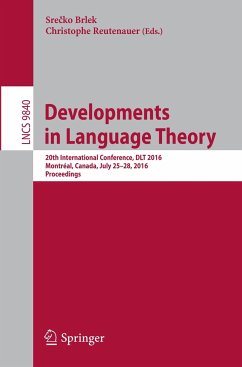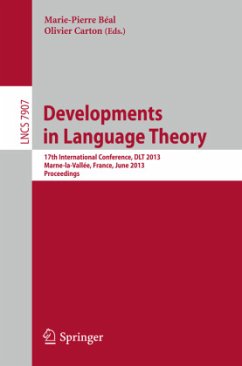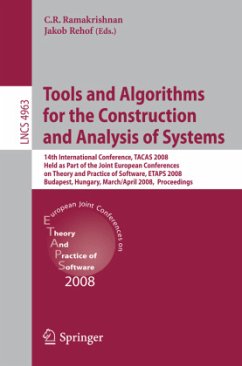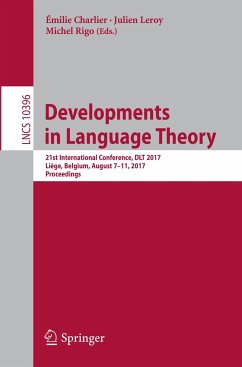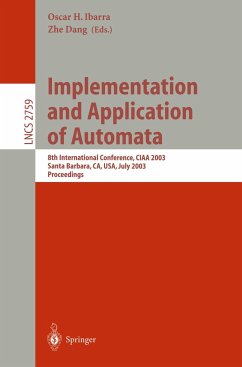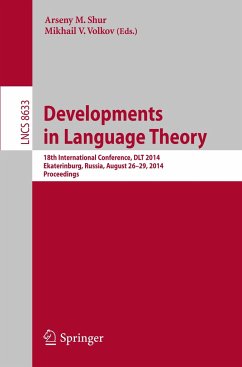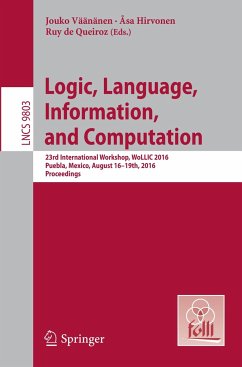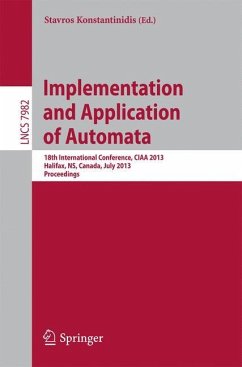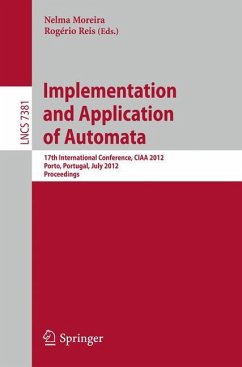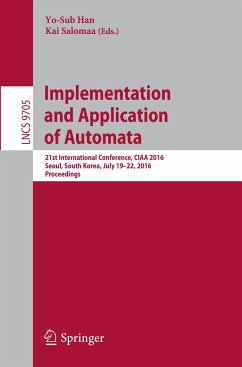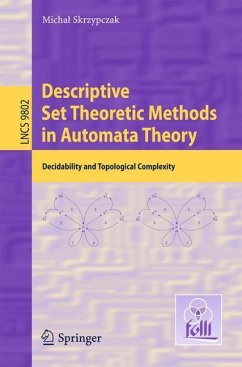
Descriptive Set Theoretic Methods in Automata Theory
Decidability and Topological Complexity

PAYBACK Punkte
19 °P sammeln!
The book is based on the PhD thesis "Descriptive Set Theoretic Methods in Automata Theory," awarded the E.W. Beth Prize in 2015 for outstanding dissertations in the fields of logic, language, and information. The thesis reveals unexpected connections between advanced concepts in logic, descriptive set theory, topology, and automata theory and provides many deep insights into the interplay between these fields. It opens new perspectives on central problems in the theory of automata on infinite words and trees and offers very impressive advances in this theory from the point of view of topology....
The book is based on the PhD thesis "Descriptive Set Theoretic Methods in Automata Theory," awarded the E.W. Beth Prize in 2015 for outstanding dissertations in the fields of logic, language, and information. The thesis reveals unexpected connections between advanced concepts in logic, descriptive set theory, topology, and automata theory and provides many deep insights into the interplay between these fields. It opens new perspectives on central problems in the theory of automata on infinite words and trees and offers very impressive advances in this theory from the point of view of topology.
"...the thesis of Michal Skrzypczak offers certainly what we expect from excellent mathematics: new unexpected connections between a priori distinct concepts, and proofs involving enlightening ideas." Thomas Colcombet.
"...the thesis of Michal Skrzypczak offers certainly what we expect from excellent mathematics: new unexpected connections between a priori distinct concepts, and proofs involving enlightening ideas." Thomas Colcombet.



